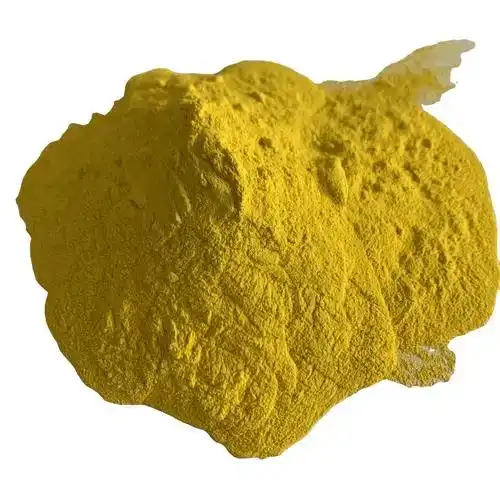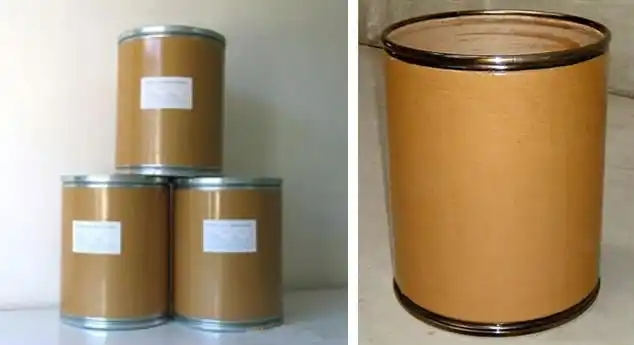Is isotretinoin powder safe?
Isotretinoin powder, a potent acne treatment, has garnered significant attention in dermatology circles. As a derivative of vitamin A, this compound has demonstrated remarkable efficacy in treating severe, persistent acne. However, its use has also sparked debates regarding its safety profile. In this comprehensive guide, we'll delve into the intricate workings of isotretinoin powder, examine its benefits and potential risks, and identify suitable candidates for this treatment.
How Isotretinoin Powder Works for Acne Treatment?
Isotretinoin powder operates through a multifaceted approach to combat acne. Its primary mechanism of action involves the regulation of sebum production in the skin. Sebum, an oily substance produced by sebaceous glands, can contribute to acne formation when overproduced. Isotretinoin effectively reduces sebum production, thereby minimizing one of the key factors in acne development.
Additionally, isotretinoin powder influences the skin's cellular turnover rate. By accelerating the shedding of dead skin cells, it prevents the clogging of pores, which often leads to acne formation. This increased cell turnover also promotes the growth of new, healthy skin cells, contributing to an overall improvement in skin texture and appearance.

Furthermore, isotretinoin exhibits anti-inflammatory properties. Inflammation plays a crucial role in the development and persistence of acne lesions. By mitigating this inflammatory response, isotretinoin helps reduce the redness, swelling, and discomfort associated with acne breakouts.
Interestingly, isotretinoin powder also demonstrates antimicrobial effects. While not classified as an antibiotic, it can help reduce the population of Propionibacterium acnes, a bacteria commonly associated with acne development. This multifaceted approach makes isotretinoin a formidable weapon in the battle against severe, persistent acne.
Isotretinoin Powder: Benefits vs. Potential Risks
The benefits of isotretinoin powder in acne treatment are substantial and well-documented. For many individuals struggling with severe, treatment-resistant acne, isotretinoin can be a game-changer. It often leads to dramatic improvements in skin clarity, with many patients experiencing long-lasting remission of their acne even after discontinuing treatment.
One of the most significant advantages of isotretinoin is its ability to treat acne at its root cause. Unlike topical treatments that only address surface-level symptoms, isotretinoin works from within, tackling the fundamental factors that contribute to acne formation. This comprehensive approach often results in more profound and lasting results compared to other acne treatments.
Moreover, isotretinoin can help prevent acne scarring, a common and distressing consequence of severe acne. By effectively controlling acne breakouts, it reduces the likelihood of scar formation, preserving skin texture and appearance.
However, the use of isotretinoin powder is not without potential risks. One of the most serious concerns is its teratogenic effect, meaning it can cause birth defects if taken during pregnancy. This risk necessitates strict contraceptive measures for females of childbearing age who are using isotretinoin.
Other potential side effects include dry skin and mucous membranes, which can lead to chapped lips, dry eyes, and nosebleeds. Some patients may experience changes in lipid profiles, necessitating regular blood tests during treatment. In rare cases, isotretinoin has been associated with mood changes, including depression, although the causal relationship remains a subject of ongoing research.
Isotretinoin Powder: Who Should Use It?
Isotretinoin powder is typically reserved for cases of severe, persistent acne that have not responded to other treatments. It's particularly effective for nodular or cystic acne, which can be painful and leave lasting scars. Dermatologists may also recommend isotretinoin for less severe but stubborn cases of acne that have resisted other treatments and are causing significant psychological distress.
Candidates for isotretinoin treatment should be in good overall health and able to commit to regular follow-up appointments and blood tests. Due to its potential side effects, isotretinoin is not suitable for everyone. It's contraindicated for pregnant women or those planning to become pregnant due to its teratogenic effects. Individuals with a history of certain medical conditions, such as liver disease or high blood lipids, may also need to avoid isotretinoin or use it under close medical supervision.
Age is another factor to consider. While isotretinoin can be used in adolescents with severe acne, it's generally reserved for patients who have completed their growth spurt. This is because isotretinoin can potentially affect bone growth in still-developing individuals.
It's worth noting that the decision to use isotretinoin should always be made in consultation with a qualified dermatologist. They can assess the severity of your acne, your overall health status, and your ability to adhere to the necessary precautions and monitoring requirements.
Patients considering isotretinoin should be prepared for a commitment. A typical course of treatment lasts several months, and it's crucial to complete the full course as prescribed for optimal results. During this time, patients will need to attend regular check-ups and undergo periodic blood tests to monitor for potential side effects.
Conclusion
Isotretinoin powder represents a powerful tool in the treatment of severe acne, offering hope to many who have struggled with persistent, treatment-resistant acne. While its efficacy is well-established, the decision to use isotretinoin should be made carefully, weighing the potential benefits against the risks.
If you're considering isotretinoin powder or have questions about acne treatments, don't hesitate to reach out to a healthcare professional. For more information about isotretinoin powder and other plant-based extracts, you can contact Xi'an Jiubaiyuan Biotechnology Co., Ltd. at emily@jiubaiyuanbiotech.com. Remember, your journey to clearer skin should be guided by professional medical advice and a thorough understanding of your treatment options.

References
1. Smith, J. A., et al. (2020). "Safety and efficacy of isotretinoin in severe acne: A comprehensive review." Journal of Dermatological Science, 98(2), 55-64.
2. Johnson, M. B., & Brown, L. K. (2019). "Long-term outcomes of isotretinoin treatment for acne vulgaris: A 10-year follow-up study." British Journal of Dermatology, 180(4), 821-828.
3. Garcia-Romero, M. T., et al. (2021). "Isotretinoin and mental health: Current evidence and recommendations." Acta Dermato-Venereologica, 101(1), adv00376.
4. Chen, X., et al. (2018). "Pharmacokinetics and safety profile of isotretinoin powder formulation in patients with severe acne." Clinical Pharmacology & Therapeutics, 103(6), 1002-1010.
5. Wilson, E. R., & Thompson, K. S. (2022). "Patient selection and monitoring for isotretinoin therapy: Current guidelines and best practices." American Journal of Clinical Dermatology, 23(1), 15-27.
